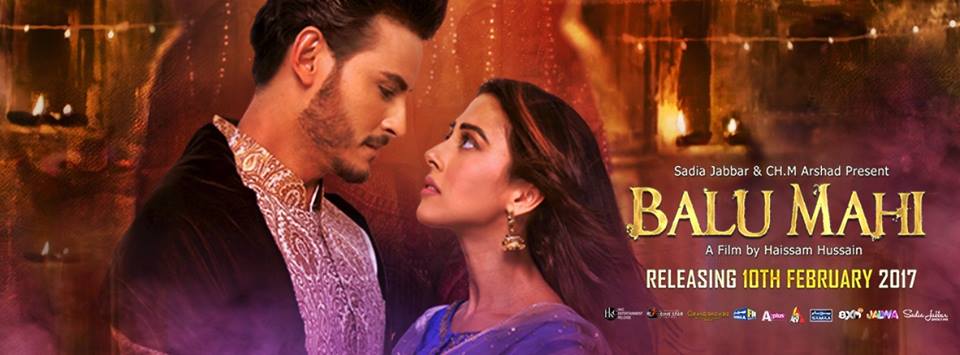Movie Review: Balu Mahi
The release of Balu Mahi comes as welcome relief to Pakistani cinema goers suffering withdrawal from the ban on Bollywood fare. The film makers have borrowed a lot from our Indian neighbours, which is also credit to their business acumen because since the ban, we have missed the glitz and over-the-top melodrama which that industry thrives on.
There are several things that Balu Mahi got right, not least it’s marketing. The three lead actors, Ainy Jaffri (as Mahi), Sadaf Kanwal (as Sharmeen) and Osman Khalid Butt (Bilal/Balu) were launched on an extensive and lavish promotional tour which was lapped up by social media.
Coming to the film itself, the story is hardly original. It starts with Balu making a desperate dash to profess his undying love to an old sweetheart on the day of her marriage. But he accidentally crashes the wrong wedding ceremony and blurts out his profession of love to a veiled Mahi instead. Being forced to marry a man she doesn’t love, our feisty heroine takes advantage of the stunned crowd and runs away with Balu on horseback. After the adrenaline wears off, they both realise the consequences of what they have done. Mahi, however, remains adamant that she was not ready for marriage and the fate her family had decided for her would have crushed her soul. So she is faced with the dilemma almost every woman in the audience can probably relate to – should she follow her dreams or bow to the wishes of her family?
If nothing else, what ensues should be a huge boost for tourism in Pakistan. The cinematography pays homage to the exotic beauty of old Lahore and the panoramic vistas of the Northern areas of Pakistan as Mahi and Balu embark on their grand adventure.
There are too many clichés to count, from Balu still being hung up on his old flame to Mahi’s manic-pixie-dreamgirl persona filling that void and them falling hopelessly in love… It’s all been done before. Also, Pakistani directors have a penchant for having too many scattered storylines and not enough closure and Balu Mahi is no different. However the movie has several moments of hilarity and the acting is more than adequate. Even Jaffri does justice to her Mahi despite the fact that her character lacks depth.
Butt as Balu is very entertaining throughout and although humour is definitely his forte, he brings an intensity to his dramatic scenes which are delivered with finesse. Sadaf Kanwal, as the femme fatale Sharmeen, looks absolutely stunning and manages to be racy but not calling-for-a-ban variety of sizzling. Butt and Jaffri’s on-screen chemistry is one that needs an encore; their performances seemed to feed off each other and the screen has found a memorable pair that already has social media abuzz.
The soundtrack of the movie is sub-par but again, the set, costumes and general glitz manage to trick you into being entertained nonetheless.
There is also the overall feminist message of the narrative (against forced marriages, of letting women follow their dreams and of men supporting those dreams) but in a story spanning over 3 hours the message may have gotten lost – and it did.
Despite these caveats, the film is worth watching for pure entertainment value.




